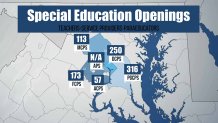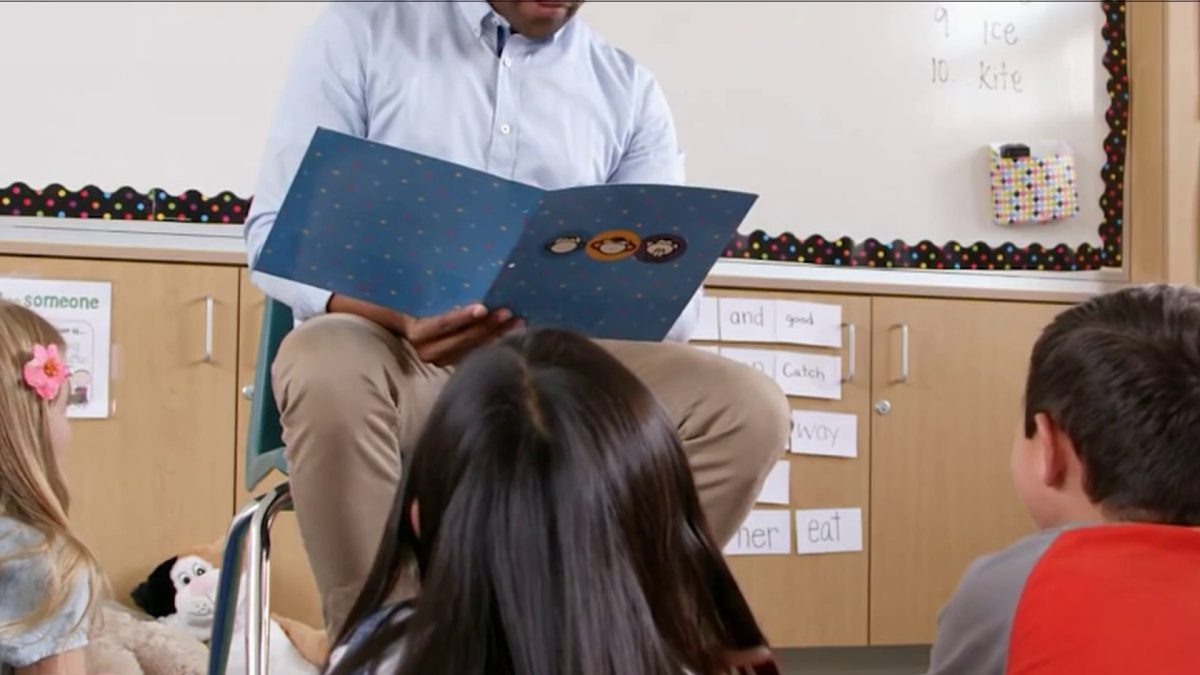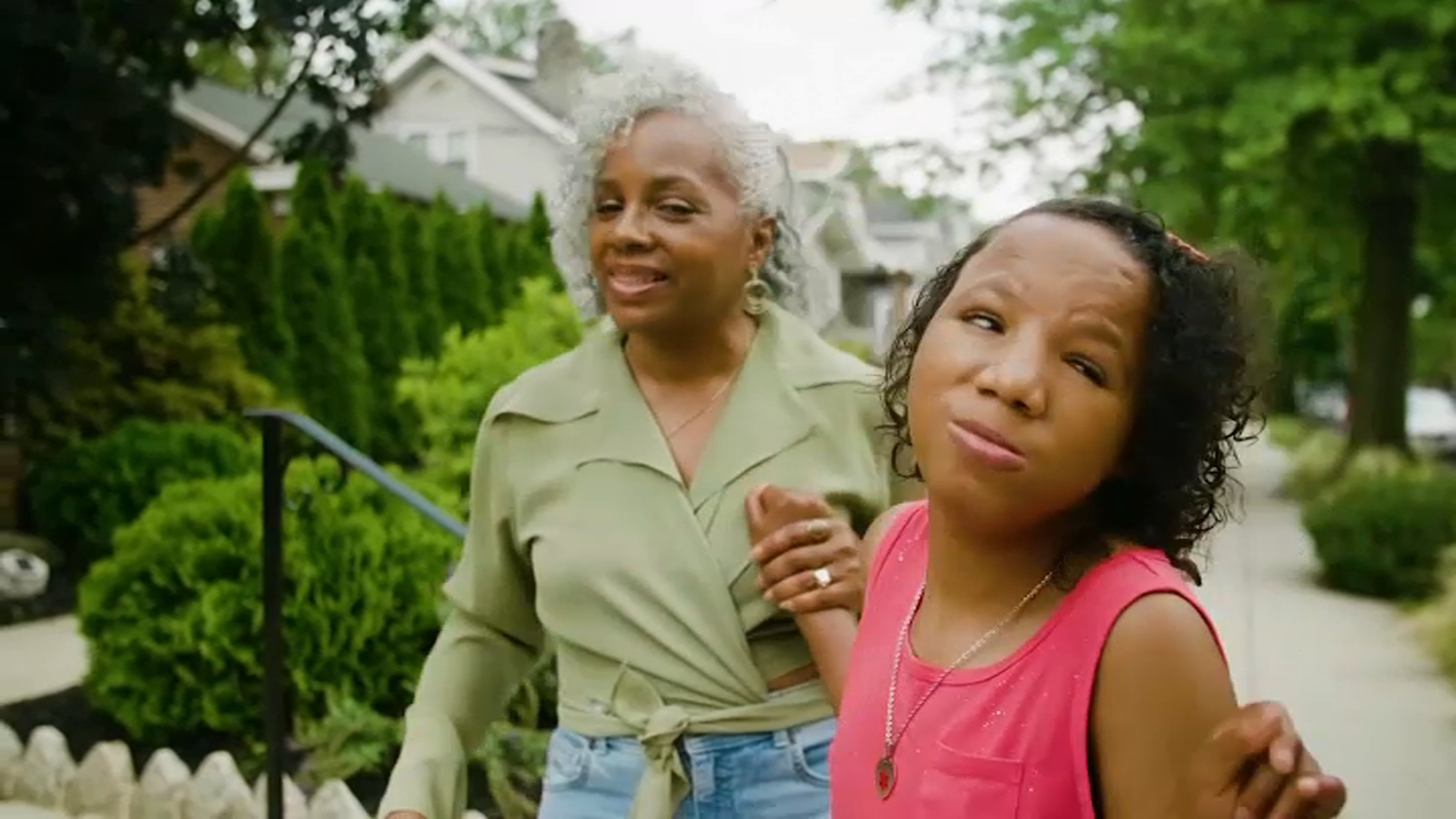As students in the University of Maryland’s special education teaching program, Pamela Rodriguez Fernandez, Alexzander Baetsen and Sophia Waltz say they’ve already experienced the joy of seeing a child with special needs blossom with the right help.
"They can do so much,” said Baetsen, a junior in the special education preparation program. “They can make so much progress."
Rodriguez Fernandez, a junior who said she plans to use her Spanish-speaking skills to help special needs students with language barriers, added, “You’re doing what you can to help these students with all these different, diverse needs and disabilities.”
The college students are a rare breed these days as future special educators preparing to enter the field at a time schools need them more than ever.
We're making it easier for you to find stories that matter with our new newsletter — The 4Front. Sign up here and get news that is important for you to your inbox.

The I-Team recently found critical shortages of special educators in just five local school districts, with nearly 1,000 unfilled special educator jobs in schools across the region. The I-Team also found almost 600 teachers, specialists and aides have quit so far this year.
"We recently went to a job fair … and at every booth, every school, county, every district was like, ‘Oh yes, come to us. We need special educators,’" said Waltz, a senior who plans to work in self-contained classrooms for students with moderate to profound disabilities.
The shortage of special educators is a problem playing out across the country, making it harder for schools to provide services to millions of children in the U.S. who have individualized education programs, or IEPs. Under federal law, schools are required to help develop and provide services – outlined in an IEP -- for students with disabilities. According to the U.S. Department of Education, more than 7 million eligible children receive that assistance.
Experts say one of the biggest headwinds in alleviating that problem is the declining number of special education majors.
"The greatest concern is that we're not developing that pipeline of qualified personnel to fill the open positions that we have or fill open positions we may have in the future," said Laurie VanderPloeg with the Council for Exceptional Children, an organization dedicated to improving outcomes for children with disabilities.
VanderPloeg calls the national staffing shortage a "crisis” that was worsened by the pandemic, which saw many teachers leave the field. At the same time, she said the U.S. has seen a 38% average decline in enrollment for educator preparation programs across the country.
"I'm worried for the staff that have the responsibility providing support and I'm worried for the families," she said.
That’s why UMD associate clinical professor Dawn Jacobs Martin, who oversees the special education teacher certification programs, said she not only prepares future special educators, but tries to recruit more into the field.
“I think in those conversations, I lead with impact,” Jacobs Martin said. “As a teacher, you are changing lives, you are inspiring. You are literally like a conduit to support learners in their future.”
But there's no getting around heavy and stressful workloads the job can bring, she said.
The National Coalition on Personnel Shortages in Special Education and Related Services blames the turnover on excessive paperwork, unmanageable workloads, inadequate support and professional isolation.
Experts who study the field of special education told the I-Team many new teachers are spending just three-to-five years in the profession before leaving. That’s part of the reason Jacobs Martin said UMD is not only preparing its special ed teachers for the field, but also supporting them with mentorship after they begin.
"I think the biggest thing that teachers need who are in the field is support,” she said. “They need support from the folks in their building. They need ongoing support in the form of coaching."
The students said they've already seen the toll of staffing challenges inside some local public schools, where educators are struggling to manage heavy workloads with fewer people to help.
“I think it’s important to recognize how overwhelmed they are and the workload” they have, Rodriguez Fernandez said.
"We've also seen cases where a student really would significantly benefit from one-on-one support but just doesn't have it because of a lack of staffing,” Baetsen added.
They’ve also heard warnings from those in the field. Waltz said, while attending an event with current teachers, one pulled her aside and said, "Don't do it. You don't want to do this.”
But for now, the students say their desire to help students with unique needs is what propels them forward.
“I know that I want to enter this field. I know I will be good at it,” Baetsen said. “I’m passionate about working with students with disabilities and I want to be the person that stands up and fills those vacancies.”
Waltz said she is just one of three students in her UMD cohort set to work with the most vulnerable students – those with severe disabilities.
“This is a physically, emotionally demanding field, but for me, it's so much more than that,” she said. “It’s about teaching these students who have not a lot of people in their corner and who have not a lot of resources available to them. For me, it’s all about the kids.”
Reported by Tracee Wilkins, produced by Katie Leslie, and shot and edited by Steve Jones.
Sign up for our Breaking newsletter to get the most urgent news stories in your inbox.



